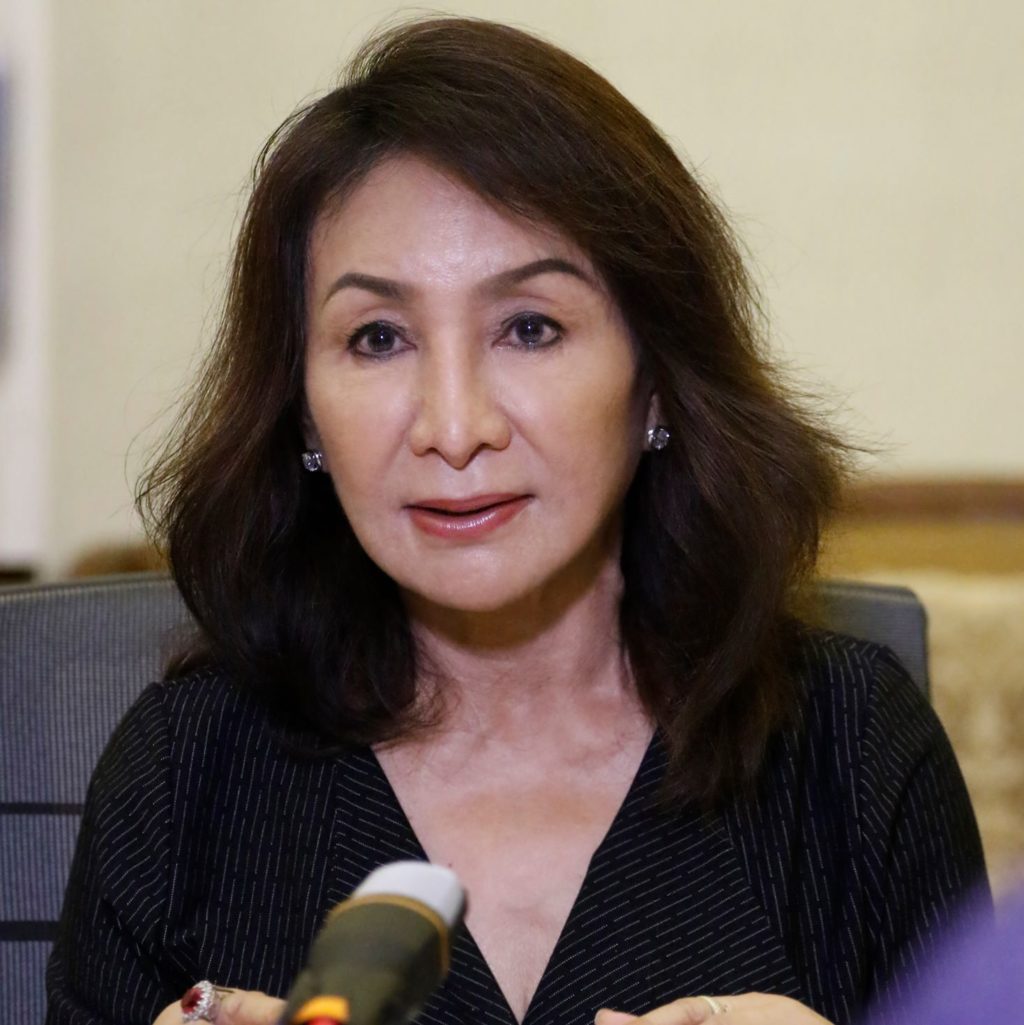
Cebu Governor Gwendolyn Garcia. Capitol PIO | Tonee Despojo
CEBU CITY, Philippines — The Commission on Human Rights (CHR) on May 22 expressed alarm on the recent comments that Cebu Governor Gwendolyn Garcia made against her critics.
In a statement issued to members of the media, Lawyer Jacqueline Ann de Guia, CHR spokesperson, said Garcia’s ‘public shaming’ on netizens over social media was “a cause for concern”.
“It is a cause for concern for CHR, especially that some personal information of the commenter was disclosed to the public, including her full name, barangay of residence, and relationship history among others… Based on the comments in the video, the person involved is already being mocked, bullied, and harassed by other internet users,” the statement read.
Garcia, in response, challenged the commission to call her out instead of the times when she neglected to do her responsibilities as the governor of Cebu.
“And through all of these days, I challenge you to point a single finger at me, calling me out for not having done the best that I could for Cebu… cause I know I have the sacred duty to serve the people of Cebu. So, ayaw ko lekturi ana kay daghan sad Sugbuanon muingon naningkamot tawun si Gwendolyn,” Garcia said.
The issue stemmed from one of Garcia’s video conferences aired on social media last May 18 when the governor name-dropped a netizen expressing criticisms against her, and divulged her user name, her relationships and family history.
The netizen received the governor’s ire after she, in a series of comments posted through Facebook live, reportedly accused the latter as corrupt (kurakot) and dumb (bogo), and complained of being starved due to a prolonged general community quarantine (GCQ).
Guia, however, pointed out that the governor’s ‘public shaming’ ran contrary to the ‘high standards of ethics’ officials in public service are bound.
“As a duty bearer, the Governor should have handled the comment through more appropriate and professional channels or could have even used her platform to clarify issues while reaching a great number of people online, rather than resulting in public shaming and personal attacks,” CHR said.
“These online platforms have the potential to bridge the gap between the governor and the governed, so it should be used to connect and improve services rather than drive a wedge or to be a means of great harm—such as, the propagation of dangerous lies, victimization of the weak, the bullying of the vulnerable, and the humiliation of the disadvantaged,” they added.
However, Garcia questioned CHR’s ‘standards’ on calling out on individuals accused of public shaming on the internet.
“Maayo man i-express but please do it in a civilized manner. Dili nianang mudiretso lang ug tawag ug kurakot unya pamalikason lang mi dayun. Dili mana civilized pero wa ka na alarma ana?” Garcia said.
(It’s good to express oneself, but please do it in a civilized manner. You cannot just call somebody a corrupt person then curse that person. That is not civilized but are you not alarmed about that?)
“Na alarma lang ka namo nga among gi callout? Akong gipublic shaming — kana mismong akong tawgun kurakot dinha sa social media… Are there double standards applied here?” she added.
(You are just alarmed by us calling them out? That I publicly shamed them — how about calling a person corrupt in social media … Are there double standards applied here?)
CHR, in the same statement, also reminded barangay health workers and other employees in the government on Data Privacy Act that prohibits and penalizes anyone disclosing ‘sensitive personal and privileged information’ without the persons’ consent.
But according to Garcia, she was just ‘simply baring the facts’, and that the barangay health workers, who allegedly provided the information about the netizen who commented against her, ‘were only presenting the facts’.
“Ayaw pakasad-a ang barangay health workers sa Ocaña. They were just presenting the facts. Nganong na UCT (unconditional cash transfer) kay pito ang anak. Pero na-qualify – why? UCT is per family… In this case, gipangutana kay pito kabuuk. Naqualify duha diay (ka anak) ana kay sa lain nga pamilya kay per family man,” she said.
(Do not put the blame on the health workers of Ocaña. They were just presenting the facts. Why she was qualified for the UCT [unconditional cash transfer] — because she has seven children. But she qualified — why? UCT is per family … in this case, they asked because she has seven children. She qualified because two of the children is from a previous relationship, because it is per family.)
“These are facts. Kinahanglan nato i-presentar to lay the premise… Nag sige ug yaw-yaw kay gigutman na lagi pero ana ang mga BHW nakadawat naman siya ug UCT kay lagi qualified siya sa UCT kay daghan ug anak. If you think if that’s too much personal information, I think it’s a matter of perspective because as far as I’m concerned… nahibaw ko unsay angay isulti unsay angay dili,” Garcia added.
(These are the facts that we need to present to lay the premise … she complained because her family had gone hungry but according to the BHW, she already received her UCT because she qualified because she has many children. If you think, that is too much personal information, then I think it is a matter of perspective because as far as I am concerned … I know what to say and what not to say.)
Garcia has been calling out critics, who hurled ‘below-the-belt’ accusations directed at her during her virtual press conferences, an action that has reached CHR, an independent constitutional body of the government tasked to investigate violations of civil and political rights. /dbs